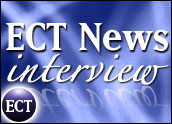
A few weeks ago, Wikipedia inadvertently blocked users in Qatar from amending posts to the collaborative Web site as it hurried to respond to a spike in spam.
The mistake is easy to understand — the spam was originating from an IP address belonging to Qtel, the only telecom provider in the country. Qatarians, however, could be forgiven for assuming their access to the site was cut off for more sinister reasons because in much of the Middle East, media is controlled in some form by the government — although how much, where, how and in which countries is difficult to say.
Enter the OpenNet Initiative (ONI), a collaborative effort founded in 2002 by researchers from several university groups — University of Toronto’s Citizen Lab at the Munk Center for International Studies, Harvard Law School’s Berkman Center for Internet & Society, Cambridge University’s Advanced Network Research Group at the Cambridge Security Program and University of Oxford’s Oxford Internet Institute.
The OpenNet Initiative’s mission is to determine where Internet censorship exists and expose it. It accomplishes this through a network of volunteers — some of whom do the work at great personal risk — and proprietary technology and software tools developed by the participants.
The E-Commerce Times spoke with Ronald J. Deibert, the director of the Citizen Lab, about the ONI’s investigative practices and just how prevalent Internet censorship — that is, blocking access to the Internet or to certain Web sites — is.
E-Commerce Times: Let’s start with the basics. Is it worse than we imagine?
Ronald Deibert:
I am afraid so — much more goes on than we realize. We are actively testing in 40 countries right now and I would say that 30 or more are actively involved in Internet censorship.
Also, the scope of the censorship is growing. The justification used to be the governments want to block access to porn or sites that could hinder national security. Now it has broadened to include political opposition, religious conversion Web sites, gay and lesbian sites and any types of extremist militant beliefs.
ECT: Are governments getting better at blocking sites?
Deibert:
Oh yes, the precision of filtering has grown as well. A lot of that is due to advances in commercial filter products. Now governments can filter out local language content.
Before, a government would block CNN, for instance. But now it is targeting blogs in Farsi or Chinese or Arabic while the Western media is relatively open. It’s the topics that hit close to home that they want to control; locals aren’t likely to read CNN’s Web site.
ECT: I imagine you’ve been watching China closely. How does it manage to control all the content it is said to control?
Deibert:
There is a lot of inconsistency in how China censors the Internet. On one level, there is sophisticated and precise targeted filtering, but there are also so many cases of under-blockages and over-blockages. Something that you would assume would be blocked, for instance, is often not.
Remember the on-again, off-again ban on Wikipedia? The truth is it hardly mattered whether the site was banned because China implements keyword filtering at the backbone level.
ECT: Then why did they allow such a public flap to develop when it didn’t matter in the first place?
Deibert:
China’s government is a huge bureaucracy. Probably what happened is that a low level official read about Wikipedia and decided to block it. Someone over him probably reversed the decision and it was all handled very clumsily.
ECT: What are some other examples?
Deibert:
In countries such as Belarus, just to name one example, the Internet is pretty much wide open except around election time. Hackers might be used to bring down a site or ISPs might be used to tamper with connection during critical periods.
ECT: How does the ONI divvy up its duties?
Deibert:
Oxford and Harvard handle the policy and legal issues. Cambridge handles field work and manages the researchers that run the tests in the country. We develop software tools used to test the networks.
ECT: Who are these researchers?
Deibert:
A lot of these people operate often at great risk to themselves. We have found them through networks of contacts that have been developed over the years, usually in conjunction with human rights organizations. Obviously we go to great lengths to protect their identities.
ECT: Tell me about some of the tech tools that you use.
Deibert:
We have a suite of network integration tools ranging from port scanning and network mapping to our own tools that allows us to — metaphorically speaking — lift the lid on the Internet. We test to see what is being filtered, how, at what level and using what technologies.
We like to test on each major ISP in a country at least 10 times over a period of weeks. Then we analyze the results and if we think it is necessary we do further tests, some of which can be done remotely. We are essentially mapping the Internet to find out where blockage is occurring.
ECT: I understand you just completed a round of tests in the countries you are active.
Deibert:
Yes, we are in the process of analyzing them now and will be releasing the results over the next few months. If you had waited a few more weeks, I could have told you conclusively if Qatar had really banned Wikipedia or not.






















































Social Media
See all Social Media